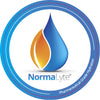Sweet But Dangerous: The Hidden Risk of Sugar Alcohols


You’re likely familiar with reading labels by now, especially if you have MCAS, mast cell activation disorder, or gastrointestinal sensitivities. You are still learning what everything is and how it affects you. In the spirit of that, let’s take a look at sugar alcohols.
WHAT IS SUGAR ALCOHOL?
Found naturally in foods like strawberry and avocado, sugar alcohols are everywhere. Contrary to its name, sugar alcohol doesn’t actually contain any alcohol. They are carbohydrates with a similar chemical makeup as sugar.
Tasting almost as sweet as sugar, sugar alcohols have almost half the calories as sugar which makes them popular with people who are doing keto diets.
SUGAR ALCOHOL VS ARTIFICIAL SWEETENERS
It’s a common misconception that the two are not the same thing. Sugar alcohols are not artificial sweeteners. Though they are both artificially manufactured and used to sweeten foods, sugar alcohols contain calories and artificial sweeteners do not. Another distinction from a consumer's perspective is that artificial sweeteners can be purchased in stores.
COMMON SUGAR ALCOHOLS
If you’re looking at labels and conscious of what you’re eating or drinking, these are the names of sugar alcohols that you may be familiar with.
- Erythritol. Often made by fermenting the glucose found in cornstarch, erythritol has 70% of the sweetness of sugar but 5% of the calories.
- Isomalt. Isomalt is a mixture of two sugar alcohols — mannitol and sorbitol. Providing 50% fewer calories than sugar, it’s most commonly used to make sugar-free hard candies and 50% as sweet.
- Maltitol. Maltitol is processed from the sugar maltose. It’s 90% as sweet as sugar with almost half the calories.
- Sorbitol. Commercially produced from glucose, sorbitol is 60% as sweet as sugar with about 60% of the calories.
- Xylitol. One of the most common sugar alcohols, xylitol is as sweet as regular sugar but has 40% fewer calories.
WHAT MAKES SUGAR ALCOHOLS POPULAR?
There are two groups of people who consistently use products with sugar alcohols. People who are diabetic and those who are on a strict keto diet.
Sugar alcohols have a minimal impact on your blood glucose levels making them popular with people who have diabetes. The sugar is poorly digested and absorbed, and for people with diabetes this means that it will not spike their sugar but will still give them the sweet taste they are looking for.
Keto diets are high fat diets with very low carbohydrate consumption. This diet is aimed at tricking your body into burning more fat so that you’ll lose weight more rapidly.
DISADVANTAGES OF SUGAR ALCOHOLS
There are some pretty serious disadvantages of sugar alcohols that for many may far outweigh the benefits.
- NOT WELL ABSORBED. This is okay if you’re not wanting to spike your glucose level, but it also means that it can cause digestive issues; bloating, diarrhea, flatulence, and other symptoms that are often common for people with IBS, or irritable bowel syndrome. As a result, if you have IBS you should avoid sugar alcohols.
- THE “SNACK WELL EFFECT”. This is where people eat more of something because they think it’s healthy for them when it’s not actually healthier.
- LAXATIVE EFFECT. It’s so effective at making you poop that some sugar alcohols are actually used in colonoscopy preps. If you have Crohn’s Disease or IBS you may experience this at a higher rate.
In people with dysautonomia, an umbrella term for various chronic illnesses, gastrointestinal effects can be one of the worst and most common symptoms. If you fall into that category, it’s important to note that you should avoid sugar alcohols.
People with POTS (postural orthostatic tachycardia syndrome), a form of dysautonomia, use a lot of electrolyte supplements to maintain the symptoms of their disease. The bad part is that many higher sodium electrolyte formulas use sugar alcohols. While short term usage may be safe, people with POTS are supplementing with multiple a day which can lead to greater health concerns.
DANGERS OF SUGAR ALCOHOLS - ERYTHRITOL
There are greater dangers associated with consuming sugar alcohols.
A recent study found that erythritol, a commonly used sugar alcohol in electrolyte powders, is closely associated with an increased risk for heart attack and stroke. The study also found that there's an increased risk of blood clot formations that can lead to a blocking of arteries. The study found that clotting factors increased for days after consumption.
People with high levels of erythritol are prone to heart attacks, stroke, and even death.
The FDA recognizes erythritol as GRAS (generally recognized as safe). That means that long term safety studies are not being required by the FDA. It also means that food companies do not have to list erythritol on their nutritional labels.
THE TAKEAWAY
For people who use electrolytes daily, you will want to ensure that you’re not consuming things that can be increasing your risk of heart disease or strokes. For people with POTS, it’s especially important that you know exactly what is in the supplements you’re using. Taking something with sugar alcohols like erythritol daily would not be a healthy choice, and if you’re not sure if the product you’re using contains it then ask!
It’s hard to say whether sugar alcohols are considered safe. More studies need to be completed, especially long term studies, before we can know for sure what the effects will be on the public.
For those with chronic illness who require additional electrolytes, drinking something like NormaLyte can make a huge difference. Our PURE formula was created with Dysautonomia International specifically for you. It contains no artificial sweeteners making it safer for daily consumption. Safety is one of NormaLyte’s core competencies. For your additional safety, NormaLyte products contain no sugar alcohols.









It is important for all of us who eat food to be aware of what is in that food. Good study and easily understood by us normal folks
a really good study you’ve made
Leave a comment